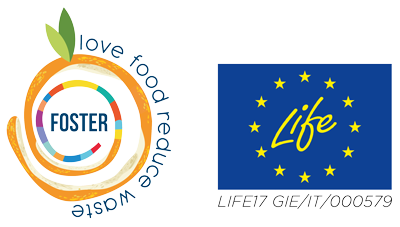Food waste has a significant impact on the environment, and raising awareness on food waste throughout the food chain is the key to reduce such losses. Our food goes through a long journey from farmers to the final consumer stage, during which a tremendous amount of food is lost. It is estimated that the quantity of wasted food every year could feed one in nine undernourished people worldwide.
Moreover, the COVID-19 pandemic has brought new difficulties to the food industry. Due to the hazards in transport and restricted working hours of hospitality industries, food waste increased, creating even more concerning results. Therefore, raising awareness of food waste is urgent now more than ever.
The perception of food waste and food loss must be addressed in every step of the food chain since each step is inextricably linked to the other. Starting from farms and factories, it is necessary to adequately manage harvesting time, be aware of the climate changes affecting the crops and have well-established distribution logistics. Food that transits from farms and factories should be stored correctly. If that is not the case, severe food losses may occur in this stage. After storing the food, the next step is transportation. Transit should encompass a good infrastructure that enables the food to stay fresh when it arrives in shops and markets. Food waste also occurs in the shops. They face several challenges, including the limited expiration dates, the customer´s requirements of the aesthetic looks of the food they buy and the necessity to have enough variants of the offered products.
Finally, the food we waste at home due to negligence is another factor that adds to the total amount of food waste and food loss.
All these steps are the cause of such a tremendous volume of consumed food in the world.
Raising awareness through national and international campaigns, studies and initiatives, as well as the steps we can do at home, can help fight this issue.
Governments should create effective interventions and programs that raise awareness, starting from the domestic food industry to household practices. Without such interventions, food might be inadequately treated.
The Food and Agriculture Organization of the United Nations established the international day dedicated to food loss and food waste awareness. It is celebrated on the 29th of September. Spreading the word through educating people around the world helps to increase the mindful consumption of food.
As a result of education initiatives, many businesses and entrepreneurs incorporated good food waste practices. Supporting these companies is another way we can make a significant change.
There are limitless ways to make a positive impact. Actions such as volunteering with the food rescue organizations and organizing events that raise food waste awareness are valuable efforts we can make in our neighborhood.
Even more so, we can make small changes at home, such as using the leftovers, buying only the necessary amount of groceries, taking care of the expiration dates and composting the kitchen scraps.
Conclusively, food waste is an issue that should be addressed at every step of the food chain. Rising awareness on a national and international level through education and ecologically conscious practices is the key to reducing global food waste. Starting from our local area, we can make a small impact, but big enough to cause the much-needed butterfly effect for a sustainable future.


